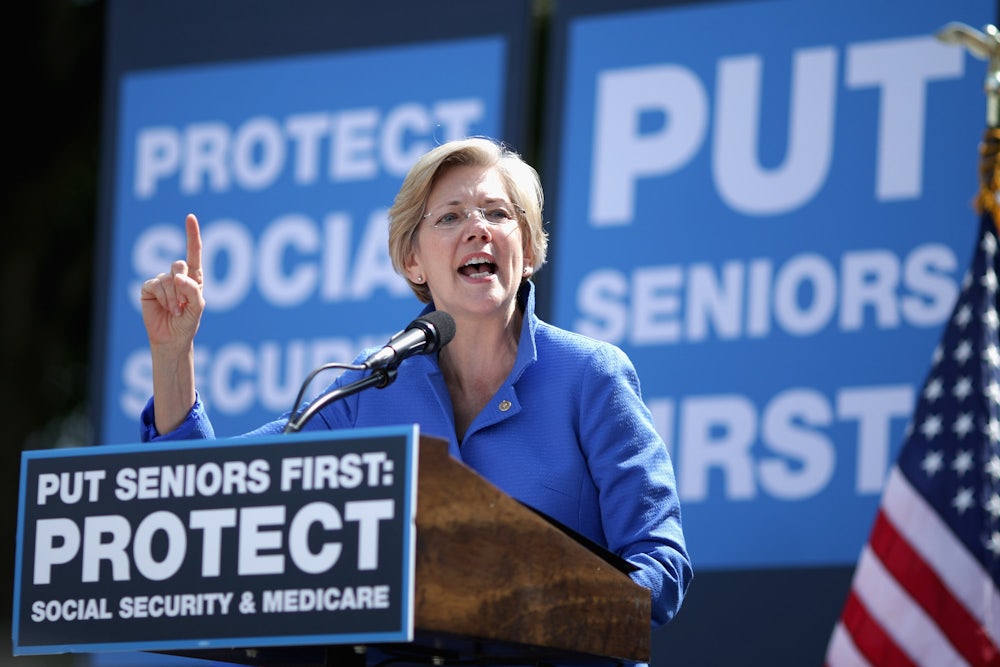Bernie Sanders has not yet introduced his Medicare for All bill in the Senate, but on Thursday morning it gained an important supporter in Warren. In a statement, Warren said she based her decision on her constituents’ needs and added:
I believe it’s time to take a step back and ask: what is the best way to deliver high quality, low cost health care to all Americans? Everything should be on the table—and that’s why I’m co-sponsoring Bernie Sanders’s Medicare for All bill that will be introduced later this month.
Warren has said in the past that she supports single-payer in concept, but this is her clearest and most specific position on the issue yet. As Jeff Stein noted at Vox, she is now the second senator to endorse Sanders’s bill. The first is Kamala Harris, who, like Warren, is often considered a possible contender for the party’s 2020 nomination. Meanwhile, Rep. John Conyers’s Medicare for All bill now has 117 co-sponsors. That’s a historic high for the bill, which Conyers has introduced every year since 2003.
The Democratic Party has traditionally shied away from full-throated support for single-payer, a reluctance that party leaders like Nancy Pelosi have attributed to voter sentiment. But voter preferences are beginning to change: In June, Pew Research Center found that 60 percent of voters say the government has a responsibility to ensure access to health care, and 33 percent support a single-payer approach. Pitfalls do remain. A comprehensive Kaiser Family Foundation survey found that although support for universal health care—whether it’s called single-payer or Medicare for All—is growing, that support is also “malleable”:
For example, when those who initially say they favor a single-payer or Medicare-for-all plan are asked how they would feel if they heard that such a plan would give the government too much control over health care, about four in ten (21 percent of the public overall) say they would change their mind and would now oppose the plan, pushing total opposition up to 62 percent.
Still, the proposal’s support in the House and the initial support in the Senate are signs that single-payer health care is becoming mainstream, in a way few could imagine before Sanders launched his long-shot bid for the White House in 2016.
